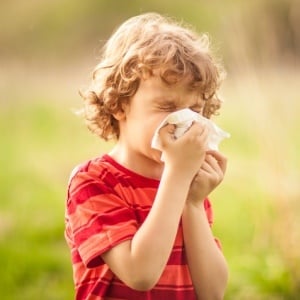
The changeable weather patterns worldwide may lead to a pollen "superburst" – and for allergy sufferers that may mean misery, a sinus specialist cautions.
Usually, pollens come in waves. First, trees, then weeds, then grasses. But this year, they may all hit around the same time, says Dr Jordan Josephson, an ENT-otolaryngologist in New York.
High pollen count
Up to 20% of South Africans suffer from allergic reactions, according to the Allergy Society of South Africa. Symptoms can include nasal stuffiness and discharge, headaches, cough, sore throat, swollen glands, hoarseness, bad breath, mouth breathing, chapped lips, decreased sense of smell or taste, facial and dental pain, general fatigue, ear pressure, hearing loss and dizziness.
It's important to deal with allergy symptoms immediately, Josephson said.
A Health24 article reports that allergy symptoms are minimal during rainy or windless weather as pollen is unable to become airborne during these weather conditions. The pollen count is at its highest during dry, hot and windy weather.
Fortunately spring is still a few months away, giving us time to prepare for "pollen season".
Untreated allergies
"Allergies left untreated can cause sinus swelling leading to chronic sinusitis. Allergies can also affect your digestive tract. Gastroesophageal reflux disease (GERD) can be a direct response of the allergic response. So allergies can seriously affect your quality of life. Just ask any allergy or sinus sufferer," he said.
There are no available pollen statistics in South Africa.
Dr Punita Ponda is an assistant chief in the division of allergy and immunology at Northwell Health in Great Neck, New York. She said it's important to get ahead of your allergies.
Beat those allergies
"If you know from previous experience that you will suffer from springtime allergies, start your allergy medication at least one to two weeks before the season starts," Ponda advised.
"Getting your medications into your system during that time will help protect you when the season hits. Stay on your medication through the season," she said.
Both Ponda and Josephson had some additional tips for staying well through allergy season:
1. Remain indoors as much as possible between 10 a.m. and 4 p.m. when pollen counts are highest. Take a shower after being outside to rid yourself of the pollen that may have attached to your skin and hair.
2. As soon as you get home, take off your clothes and wash them immediately. Keep clothes that have been exposed to pollen separate from clean clothes.
3. Keep your home's windows and doors closed and use air conditioning whenever possible because it cleans and dries the air. Make sure you change air-conditioning filters often. Consider using an air purifier, especially in your bedroom.
4. To clear your sinuses of pollen, irrigate them with a neti pot every day when you return home. Take antihistamines but try to avoid decongestants when possible.
Read more:
Tree and grass pollen season risk - South Africa




 Publications
Publications
 Partners
Partners















